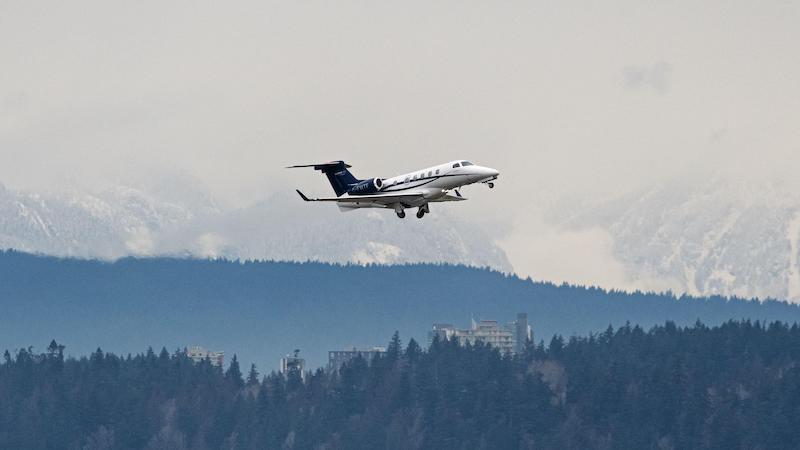
An Embraer Phenom 300 light business jet climbs to altitude.
Eighty-two percent of U.S.-based business aviation financiers and private jet brokers expect access to business aviation financing to rise over the next three years, according to a new survey commissioned by Airbus Corporate Jets (ACJ).
Only 1% of respondents foresee a decline while seventeen percent expect business aviation financing to stay the same.
Close to all respondents—98%—say that business aviation finance rates remain attractive and believe it is preferable to buy an aircraft with credit.
The news comes hot on the heels of Aviation Week's 2024 Fleet & MRO Forecast, released earlier in October, that expects 9,047 aircraft deliveries to the business aviation market over the 2024-33 period. Business jets are expected to account for 76% of that total. The vast majority of those bizjets are destined for the North American market.
“The business aviation market is predicted to enjoy consistent growth in the coming years, and aircraft financing will be key to facilitating this growth,” says Sean McGeough, VP Commercial ACJ for North America. “Many of those purchasing aircraft do not want to tie up huge amounts of their capital in the transaction and turn to leasing and other forms of credit.”
At the same time, 25% of respondents expect a large increase in the size of cash deposits used in the purchase of business jets over the next five years while 54% foresee a slight rise, reducing the size of any debt secured to buy an aircraft.
Given fiscal and monetary policy uncertainty, 74% of survey respondents reckon that the preference for fixed-rate transactions will rise over the next five years among those using leases and credit to purchase business aircraft while 69% of business aviation financiers and brokers believe demand for operating leases—in which the lessor takes the residual value risk buyer—will tick up between this year and 2028.
Survey respondents were more divided on how the value of business aircraft will hold up in the coming years. While 85% expect sales of larger business jets to increase in the five years to 2028, just 51% believe this growth in demand will help the aircraft keep their residual value. Further, 42% say that this will have no impact and valuations “will move in line with the overall market.”
Meanwhile, taking into consideration rising demand for larger business jets, 77% of respondents expect that securing financing for these aircraft will be easier than for mid-sized and smaller jets.
Lastly, 68% of respondents believe that specialist lenders will increase their market share over mainstream banks.
“The business aviation finance market is very competitive with many financial players willing to lend money to meet their client’s needs. Innovation and flexibility in the sector is also increasing and we expect this to continue,” McGeough says.





